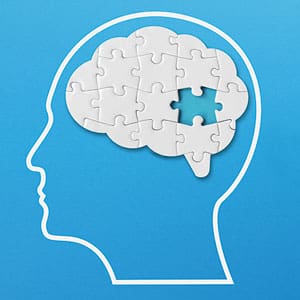
© Andrey Popov / Stock.adobe.com
Spin doctoring
A look at the causes and treatments of vertigo
Twenty years ago, when Costco member Theresa Babb awoke on a workday morning, the room started to spin when she sat up in bed. Feeling nauseous, the then 43-year-old resident of Dartmouth, Nova Scotia, lay back down, which worsened the spinning sensation. Instead of driving her to work, Babb’s husband took her to the hospital, where she was given a shot of something (she can’t recall what) that made her feel better. After she got home, she went back to sleep—but when she tried to sit up again, the spinning returned.
A friend who happened to be a neurologist figured Babb was experiencing vertigo. An appointment with a vestibular rehabilitation physiotherapist at the Atlantic Balance and Dizziness Centre in Dartmouth confirmed benign paroxysmal positional vertigo, or BPPV.
“It was a relief to get a diagnosis, because I had to sleep sitting up, and I couldn’t drive,” says Babb. “It was extremely debilitating.” It took about three weeks of treatment—a series of positional head movements performed by a physiotherapist that Babb was taught to do at home—to stabilize the dizziness so she could resume normal activities.
Kinds of vertigo
Costco member Kim Dao, an assistant professor at Tufts University School of Medicine, has treated many vertigo patients. A board-certified clinical specialist in neurologic physical therapy, she says that up to 40% of adults will experience some form of vertigo-related dizziness.
Women are three times more likely than men to experience vertigo. “That could be hormonal or due to changes in bone structure, because BPPV, the most common type, is starting to be linked to osteoporosis,” says Dao. “We know a lot about vertigo, but there’s always more to learn through research.”
In addition to BPPV, there are other types of vertigo, including labyrinthitis, viral, migraine and Ménière’s disease. “Even if a vestibular physical therapist isn’t sure of a diagnosis if it isn’t BPPV, the treatment is similar,” says Dao. “Some strokes can present purely with vertigo, so during our assessment, we ask questions to rule out stroke. If we think a patient needs further attention beyond what we can provide, we refer them to urgent medical care.”
A look at the causes
The causes for vertigo vary. For example, BPPV occurs when calcium carbonate crystals that are normally embedded in gel in the inner ear canals become dislodged and move into one or more of the three fluid-filled semi-circular canals, where they are not supposed to be. Labyrinthitis is usually caused by the common cold or flu, which spreads to the innermost part of the ear. And Ménière’s disease is a recurrent attack due to fluid imbalances in the inner ear (a drug called betahistine taken during an attack, along with a low-salt diet, can improve Ménière’s symptoms).
“With any type of vertigo, brain signals need to be rewired to correct the error signal to decrease the dizziness,” says Dao. A weakened vestibular system can be improved through eye-strengthening exercises and closed-eye balance postures. “These adaptation exercises help strengthen the whole vestibular system.”
Since Babb’s first BPPV episode, she has experienced one other as severe, plus several milder episodes. “I can manage the mild ones on my own, but when it’s severe, I know where to go for help,” she says. For someone newly diagnosed with vertigo, she says this: “Don’t think this is going to be your life from now on. You will recover from it, and you’ll learn how to manage it.” Dao echoes Babb’s hopeful note: “Physical therapists can treat it quickly and have an immediate impact. There’s a way out, and it can be as simple as one visit to get the positional manoeuvres done.”
Concussion concern
“Concussion from a sport, or any trauma to the head, such as from a car accident, can dislodge calcium carbonate crystals and cause vertigo,” says neurologic physical therapist Kim Dao. Feeling dizzy, lightheaded or like the room is spinning can happen after a concussion. These sensations can be caused by the brain injury, or from changes in blood pressure or problems with vision or the inner ear. Visit a doctor for possible concussion. They may refer you to a physical therapist specializing in vestibular rehabilitation.—JD

© ytemha34 / stock.adobe.com
Stroke Awareness
Certain types of strokes are often missed because symptoms of vertigo or dizziness can be misattributed to ear conditions. According to an article in the Canadian Journal of Emergency Medicine, several multi-centre studies were conducted at 13 Canadian hospital emergency rooms over 11 years. They enrolled patients who were diagnosed with a transient ischemic attack (a stroke that lasts only a few minutes) and compared them to patients with isolated dizziness.
Only 0.8% of patients with isolated dizziness had a stroke within 90 days, compared to 2.9% of those presenting with neurological symptoms. Because such a high number of emergency room patients with dizziness do not have a stroke, properly diagnosing a stroke in these cases is a challenge.—JD
Jane Doucet is a Halifax-based journalist and author.
COSTCO CONNECTION: A variety of over-the-counter medications that may help with vertigo are available in most Costco warehouses and at Costco.ca.

